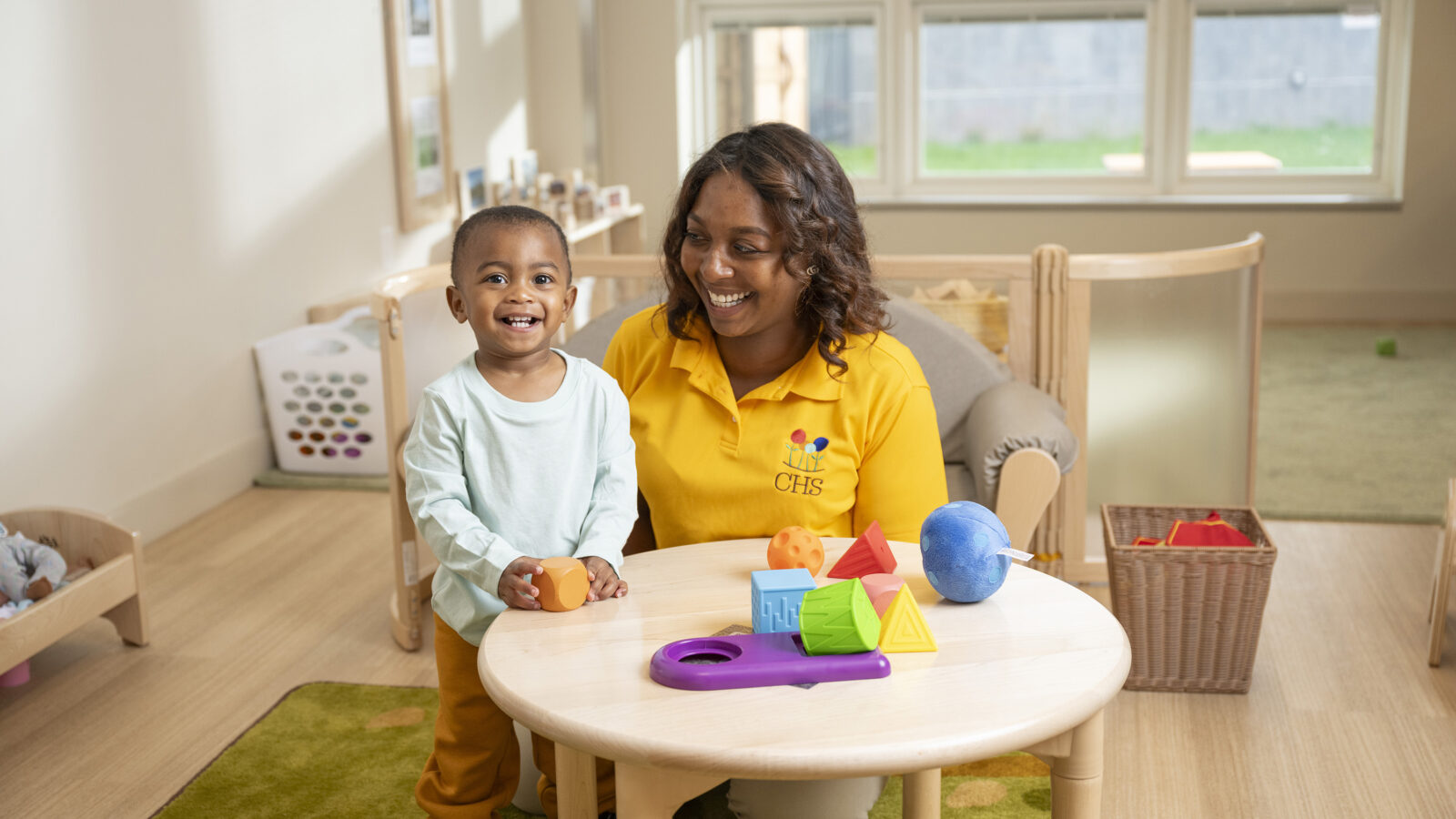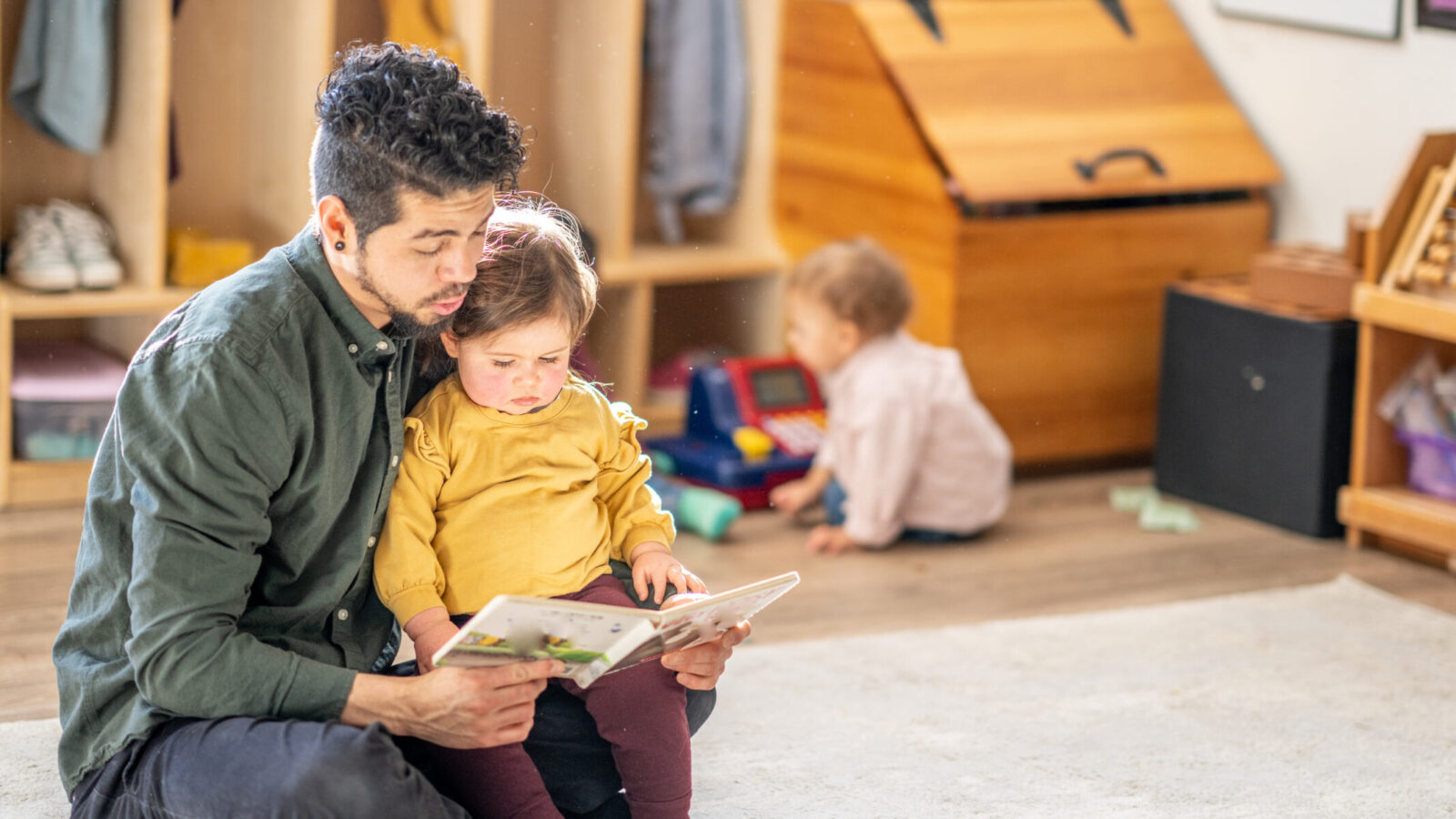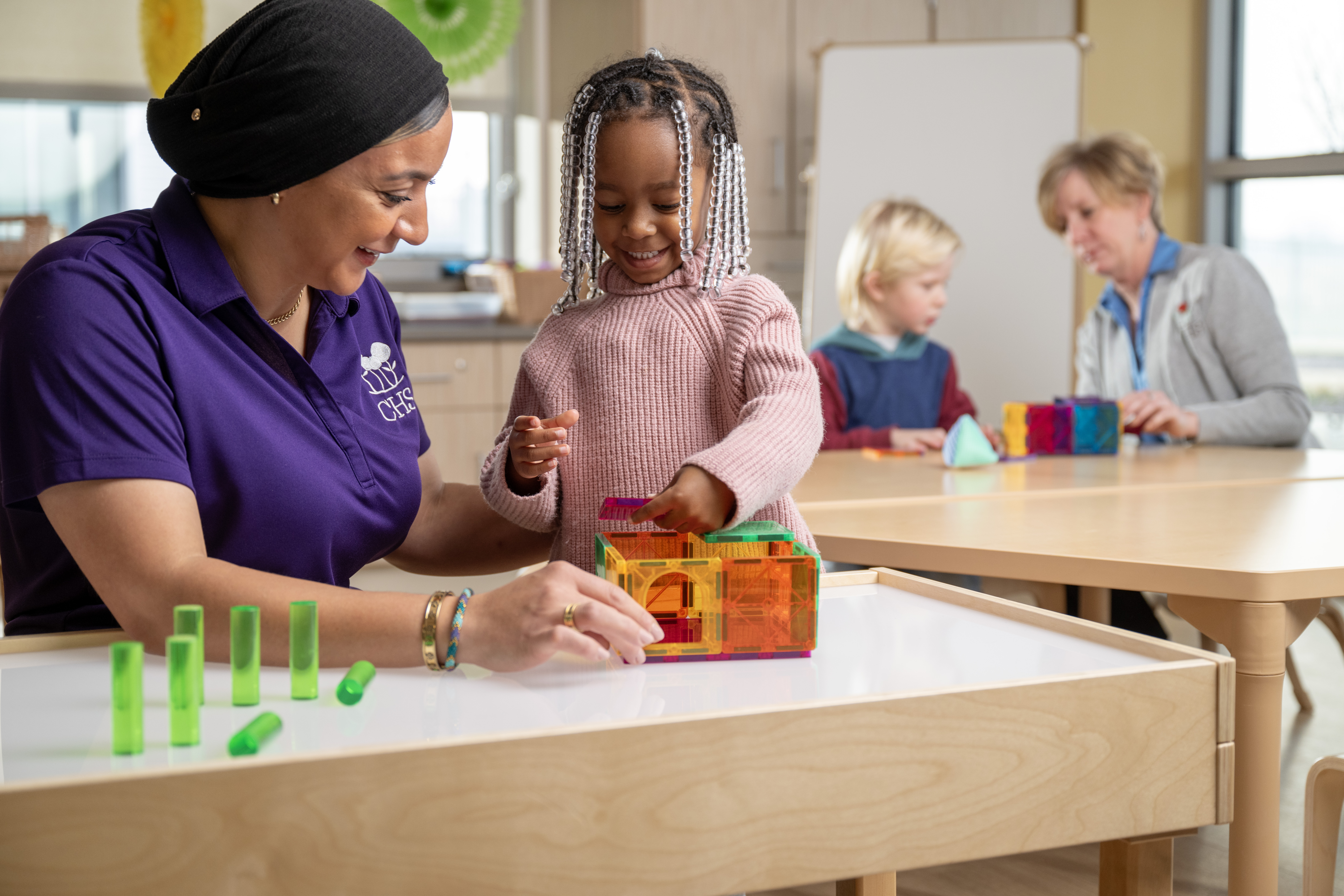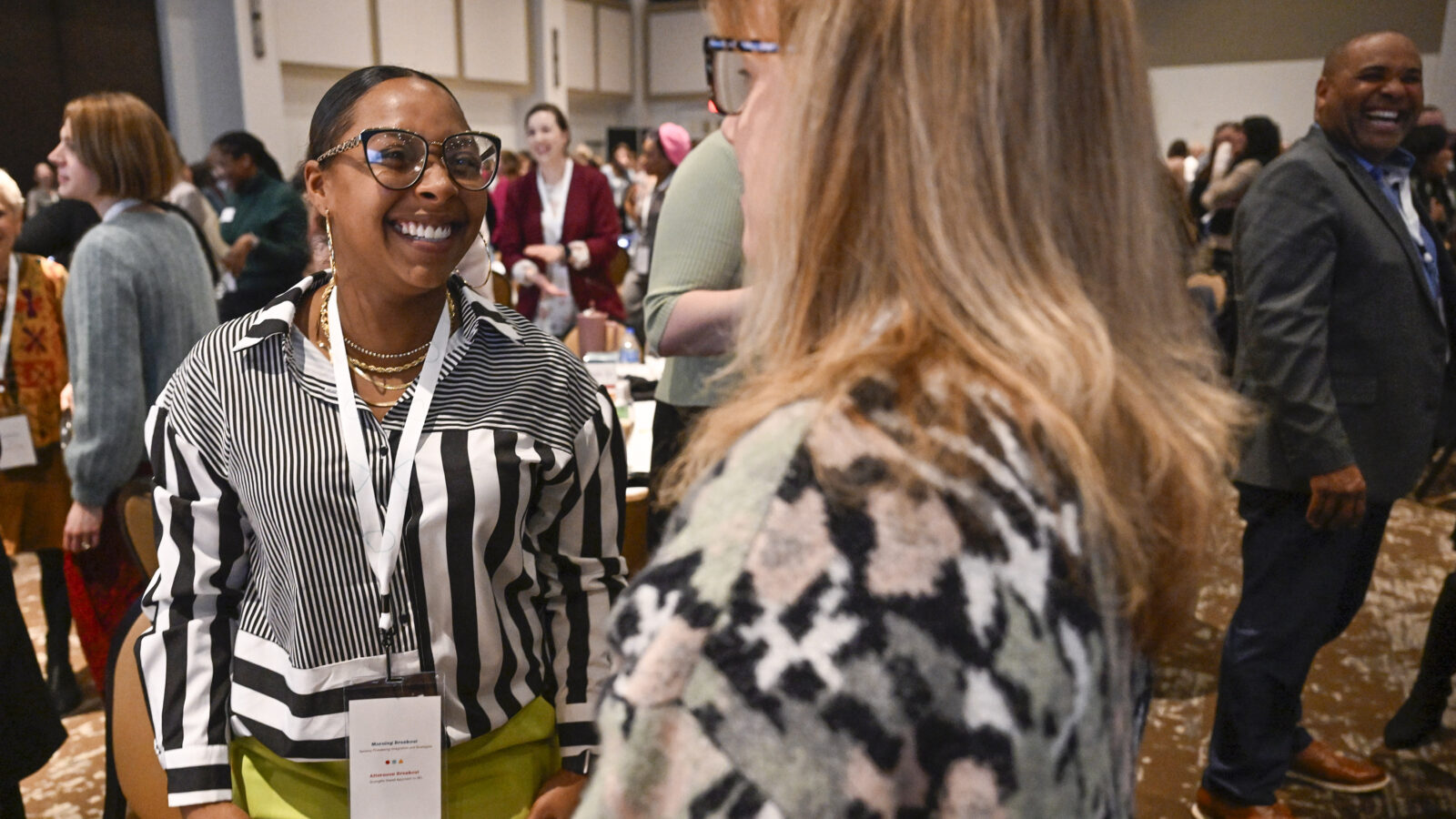Mitigating Adverse Childhood Experiences in the Early Learning Classroom
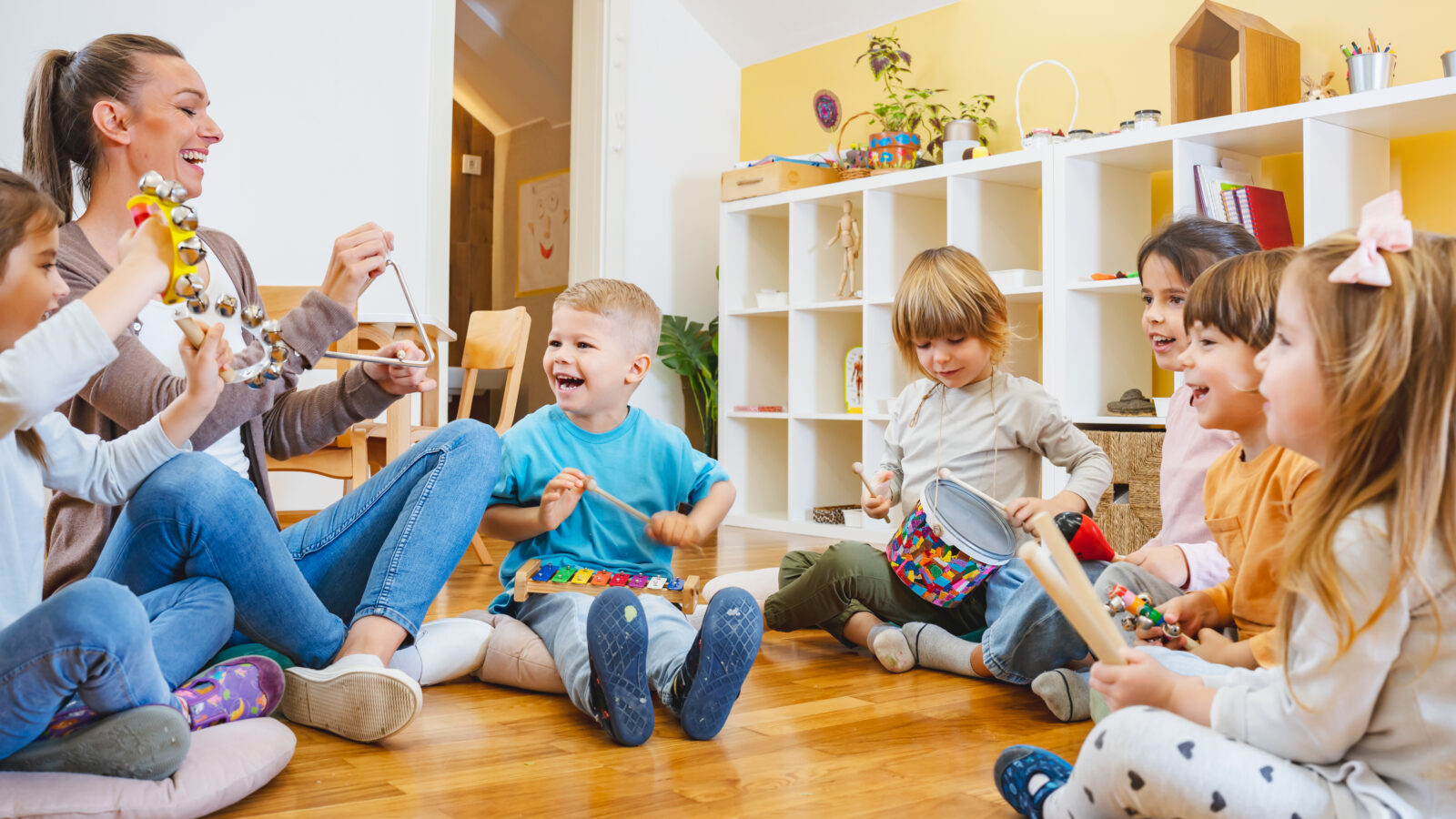
By Dr. Rebekah Benedum (Ed.D), Senior Director of Programs at Catherine Hershey Schools for Early Learning
When children come into an early learning setting for the first time, it can be tempting for educators to look at them as books with blank pages, waiting to be ‘filled up’ by professionals. However, some of those pages may have already been filled with happy, supportive stories about the experiences which surround the young child. Others may have had more challenging events in their lives.
At Catherine Hershey Schools for Early Learning, where I serve as the Senior Director of Programs, we serve families who may be facing the additional stressors that come with struggling to make ends meet, such as overcrowded or unsafe housing, food insecurity, isolation and social stigma, among others.
The impact of those experiences on children was not fully understood until a 1995-1997 study which rigorously investigated childhood abuse, neglect, household challenges and their implications for later-life health and well-being.
Researchers coined the term Adverse Childhood Experiences (ACEs), showing how exposure to stressful childhood events (including those which result from poverty) may negatively affect adult health. The study now known as The ACE Study also demonstrated direct links between negative experiences in childhood and achievement in adult life. For children facing prolonged exposure to Adverse Childhood Experiences, this can disrupt growth and impair learning, memory, and emotional regulation.
Early childhood experiences, both positive and negative, during the first five years of life have significant effects on young children due to the rapid brain development in this time period. The consequences can be especially significant when they happen early in life, are severe, or build up over time. And for those of us working with young children, this means we are on the front line in the fight to give children the best chance of success.
The Power of Positivity
It doesn’t have to be like that; exposure to ACEs does not always result in trauma or toxic stress. Adversity does not have to condemn children to a lifetime of poor outcomes, and the majority can recover and make incredible progress when the right supports are in place.
That’s where Positive Childhood Experiences or PCEs come in. These include nurturing and economically stable home environments, strong and responsive relationships with caregivers, and high-quality early care and education experiences. Research shows these PCEs can mitigate the negative impacts of traumatic experiences, support healthy brain development and establish a strong foundation for lifelong health and success.
The role of quality Early Childhood Education cannot be overstated as a means of ‘insuring’ children against the challenges that the future may bring. It’s important that, as well as being aware of the negative impacts on children’s lives, early childhood educators should also focus on the positive—creating PCEs which can support the child’s current development, and also ensure future mental health when they become an adult.
Broadly, PCEs fall into these categories:
- Nurturing relationships: Feeling consistently loved, supported, and cared for.
- Sense of belonging: Feeling included, valued, and that you matter.
- Developing strengths: Having opportunities to gain skills, confidence, and grow through achievement, creativity, sports or clubs.
And the more PCEs a child has, the more likely they are to be healthy and resilient as adults. In an early learning classroom setting, as children learn to think, play and explore, they also have the opportunity to practice skills such as taking turns, managing information, and avoiding distractions. Early Childhood Education also supports Social and Emotional Learning (SEL) which includes building self-confidence and positive relationships.
SEL is foundational to children’s healthy development and overall well-being, as it creates an environment of trust and safety, and helps them achieve their full potential. It is an essential element which improves the well-being of the children in our care and their social, emotional, and cognitive development as they learn to manage their emotions, establish positive relationships, and make responsible decisions.
Quality ECE can also help prevent adverse experiences from occurring in the first place, by creating policies and programs which go beyond the classroom that promote safe, stable, nurturing early relationships and environments — such as home visiting. This can be backed up with programs to promote positive parenting, assisting with access to support services, and providing family education and supports for healthy child development and relationships.
As educators, we can provide a rich and varied range of positive childhood experiences that can negate or blunt the impact of adversity to create high-quality learning communities that nurture, educate, and empower children and families. While each of us is only one character in the lives of the children we serve, we are lucky enough to be able to help change the narrative and give every child the chance of a happy ending.

